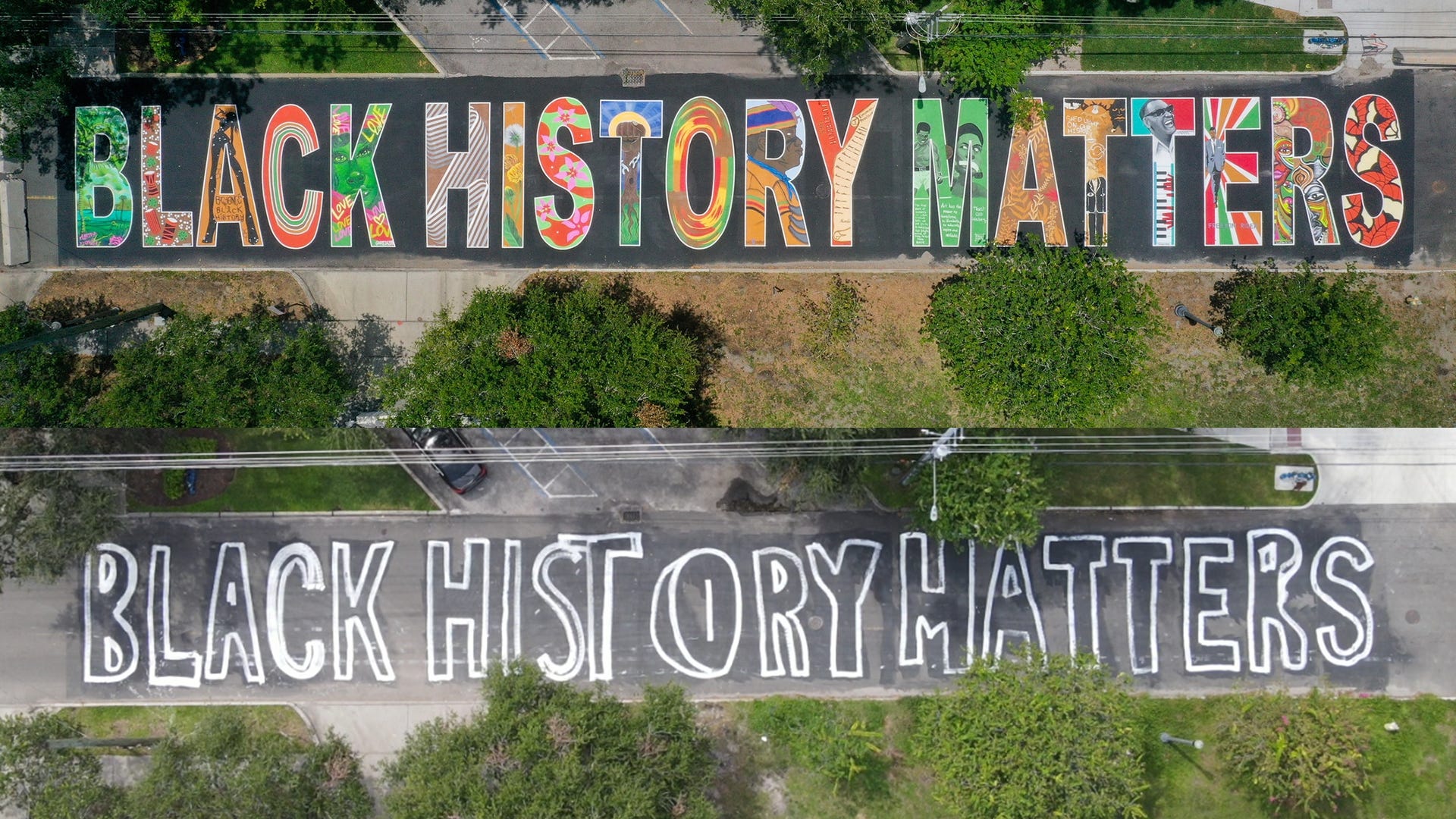I came back from a month in the UK to find the streets here stripped bare.
In Tampa, every mural was gone—forty-seven crosswalks painted gray, including ones made by schoolchildren and even a “Back the Blue” piece outside police headquarters. In St. Petersburg, the Black History Matters mural outside the Woodson had been erased under halogen light; two pastors were arrested for kneeling in prayer on the paint. At Central Avenue and 25th Street, the rainbow crosswalk was scrubbed before dawn. By afternoon, neighbors had already chalked its colors back into place.
“Democracy dies to the sound of paint machines,” one minister said.
The governor defended the order: paint your own property if you want, but no markings on state roads.
The fight, demonstrators said, wasn’t over.
It was all there waiting when I stepped off the plane—a city muted by decree, asphalt stripped of memory, and a state led by its own would-be king, convinced that erasure is power.
Florida stands ready to erase every vaccine mandate—school-entry shots for polio, measles, mumps, chickenpox, hepatitis B.
The governor calls them “immoral.” His surgeon general likens them to “slavery.”
The plan is simple: strip out the rules that protect children and the fragile, then call it freedom. Call it courage. Call it performance.
Meanwhile, crews roll in at night to grind away color and memory from our streets.
Orlando’s rainbow crosswalk at the Pulse memorial was bleached, chalked back by neighbors, then bleached again.
City after city is being told: silence your streets. Safety, they say. Standards. Uniformity.
Two moves. One method.
First, declare the public good “personal.”
Vaccination becomes a matter of taste, as if herd immunity were a lifestyle brand and not the math that shields the child on chemo at the next desk, the bus driver with a transplant, the teacher catching what moves through a crowded room.
Second, declare the public square “neutral.”
Memory is recast as distraction; color becomes threat.
Crews arrive at night, bleaching asphalt.
Roads, we’re told, are for cars, not stories.
Strip the commons of obligation and memory, and you can govern by performance.
Abandonment becomes liberty.
Erasure becomes order.
Public health becomes a stage prop.
In fifty years, vaccines have saved 154 million lives—six every minute.
The streets speak too: the mural reappeared like a heartbeat.
Chalk dust hung in the air as neighbors knelt where the rainbow had been erased.
I live in St. Petersburg.
I’ve walked past the Woodson, where the paint’s absence smells of tar and chemicals.
The silence feels heavier than traffic.
I read press releases while the streets go blank.
I watch a state make a show of freedom by taking away the things that make us less alone.
My defiance is this: I will not pretend this is normal.
I will not call it neutral.
I will name it—performance over protection, spectacle over solidarity—
and I will keep writing toward the stubborn fact that we belong to one another.
Vaccines, murals, crosswalks, classrooms: the commons we keep is the measure of us.
They can thin the paint and gut the statute books.
The work remains.
So does the color.
So do we.
That is defiance—the keeping of a commons no law can bleach.


